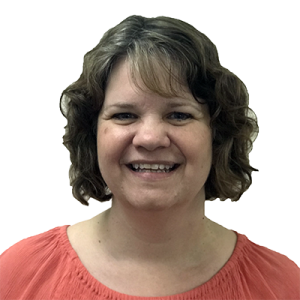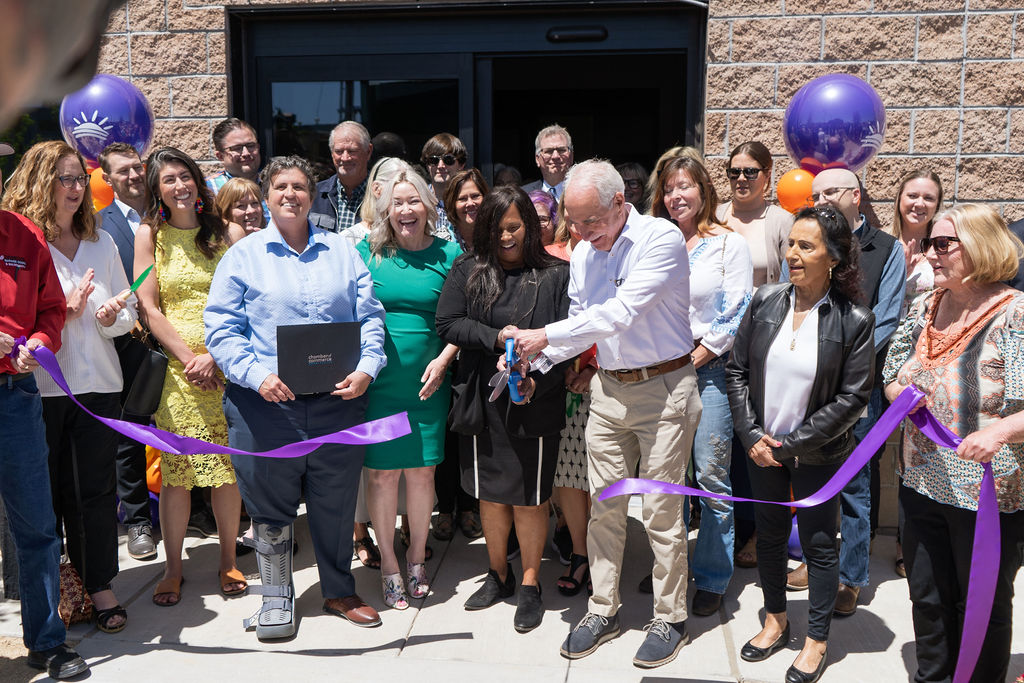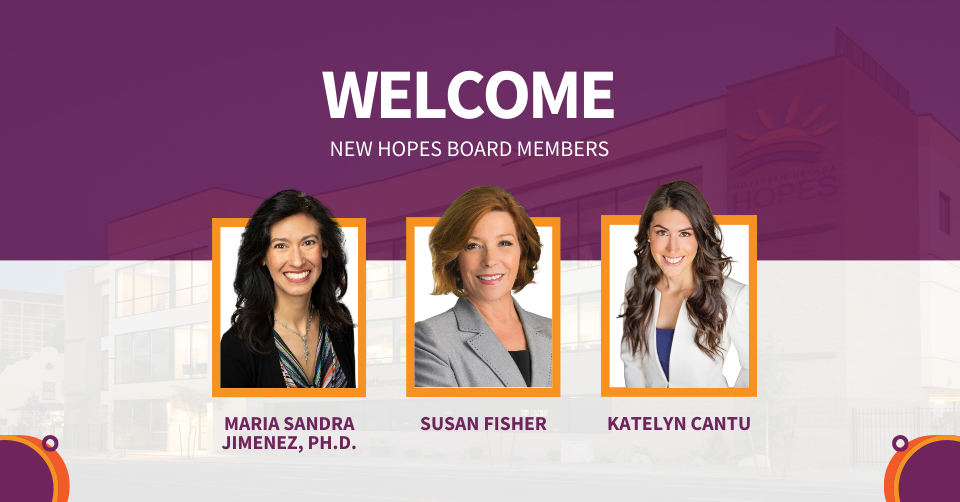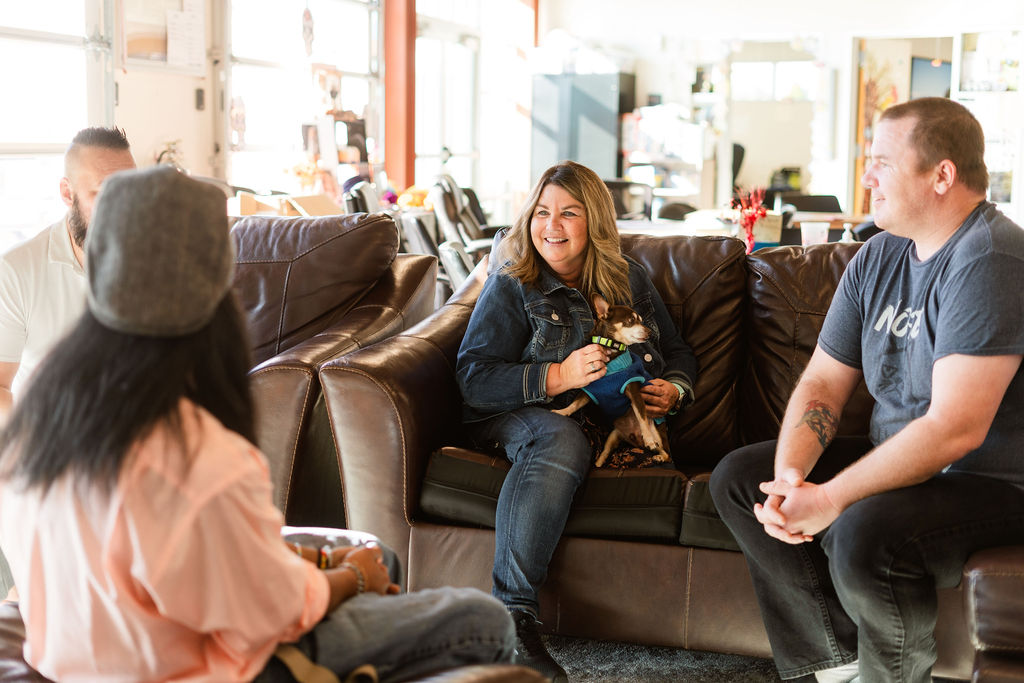Northern Nevada HOPES is excited to welcome Dr. Kristen Davis-Coelho as our new Chief Behavioral Health Officer.
Known as Dr. Kristen by her patients, she is a clinical psychologist who has practiced in Nevada for more than 20 years. Before coming to HOPES, Dr. Kristen was Administrator of the Stacie Mathewson Behavioral Health and Addiction Institute at Renown. Before that, she worked at the VA Sierra Nevada Health Care System in Reno. She is also on the clinical faculty at the University of Nevada, School of Medicine, is a member of the Washoe Regional Behavioral Health Policy Board, and is on the Advisory Board of the Nevada Physician Wellness Coalition. She earned her Ph.D. from the University of Montana in Missoula.
Before coming to HOPES, Dr. Kristen was Administrator of the Stacie Mathewson Behavioral Health and Addiction Institute at Renown. Before that, she worked at the VA Sierra Nevada Health Care System in Reno. She is also on the clinical faculty at the University of Nevada, School of Medicine, is a member of the Washoe Regional Behavioral Health Policy Board, and is on the Advisory Board of the Nevada Physician Wellness Coalition. She earned her Ph.D. from the University of Montana in Missoula.
We sat down with Dr. Kristen and asked her a few questions about why she came to HOPES, how behavioral health care is delivered in Northern Nevada, and what she plans to do in her new role at HOPES.
What attracted you to HOPES?
I like the culture. I like the fact that it’s focused on serving the most vulnerable people in our community. I have a background in community mental health from a long time ago, and I was really interested in getting back into that arena.
Also, I had met Sharon out in the community when we were on a policy board together. I had also met Danica (HOPES’ Medication-Assisted Treatment Coordinator) in some Behavioral Health Coalition meetings, and I liked both of them. I thought, “If they are representative of the work that is going on at HOPES and the culture there, then that’s a really great sign. Their presence, energy, dedication, and vision were a great recommendation for me.”
You said you like the culture here. How would you describe the culture at HOPES?
I think there is a shared energy around serving the people who need help the most, and you can feel it comes from a grass roots effort. Even though HOPES has grown into a larger organization, you can still feel those origins in the way that people view their work, patients, and the mission of the organization. The mission feels like it’s genuine, not just a thing put out by an organization just because you have to have a mission statement. It feels like the people who work here really believe in the work they are doing.
You can still feel that drive underneath the bigger structures that have been built at HOPES.
Is HOPES a good place to deliver Behavioral Health care?
Yes, absolutely. The fact that there is a focus on the coordination of care, under the Patient-Centered Medical Home model, is amazing. Behavioral health is a core component of that. And the fact that we have support services like case management helps a lot too.
A lot of places where you deliver behavioral health, they don’t have a lot of support services in place like case management, housing options, or nutrition. That makes HOPES a really good place to deliver behavioral health care. Because you can meet multiple needs of a person that are not just limited to this hour in the office. It allows us to help people in other ways outside of the office too.
Is the wrap-around care model that HOPES uses helpful in delivering behavioral health services?
Yes, it is. Otherwise, therapists and psychiatrists end up being the de facto case managers without wrap-around care.
If the person sitting in front of you is about to lose their house, you’re not just going to sit there and talk about their psychiatric medications, or how they felt about their depression. They need actual, practical life assistance at that point. If there is no one else to do that, then the therapist or psychiatrists ends up doing that work, but that’s not their area of expertise. They are going to figure out how to help as best they can, because they want to help this person. However, it’s better to have the people who are experts in case management and resources in the community to do that piece. Each member of the team needs to play to their own expertise— that way we can meet all their needs as a team.
Let’s talk about the Medication-Assisted Treatment (MAT) program here at HOPES. How does it fit into the philosophy of HOPES?
There are not enough MAT services in the community. There are some places that do it, but not enough. So, I’m excited that we are doing it, and I’m trying to grow the program. It really is the best treatment model for folks that have opioid and alcohol use disorders because it combines both the biological components, with medications, along with the psychotherapist approach with therapy and case management.
We know that addiction is a multifaceted animal, and you really have to tackle it in all those ways. There is not just a one-size-fits-all approach, or one piece of treatment is going to be enough for most people. They’re going to need to tackle the problem on multiple fronts.
What makes MAT effective?
MAT uses medications that are effective in helping people tackle their addiction, and decrease their cravings. Then the therapy piece is necessary for helping people change their lives. A lot of the time, when people have been struggling with addiction for a long time, their life becomes built around the addiction. Their relationships and job functioning, all of it gets pulled into this big black hole vortex that is an addiction.
So, giving someone medication for the biological piece is helpful, but it’s usually not enough to help them rebuild the rest of their life— their functioning, coping skills, managing their relationships and ‘what do I do on the weekend for fun now?’ Really doing both pieces is the most effective.
What kind of BH challenges do we face here in Nevada?
We fundamentally have a lack of treatment services available and a lack of behavioral health providers of all licensures. So psychiatrists, psychologists, therapists, they’re all missing. That’s the basis for the problem— the lack of treatment options and the lack of treatment providers.
From that, you end up with gaps in services. So one particular population, one set of people that can pay for treatment in a certain way, maybe have lots of options. On the other hand, people that can pay for it in a different way, or can’t pay for it at all, have no options. Somebody that needs a certain level of care has three different choices for where they can go for that care. But somebody that needs a different level of care has no choices. So we just end of with all of these gaps in a continuum of care. A really good continuum of care has a lot of different levels of care, targeting a lot of different types of people with lots of different types of behavioral health struggles. But what we have here is a lot of some things and not enough of others. And so people fall through the cracks.
How does HOPES address that problem?
We are addressing that in a few ways. One, helping people who don’t have a way to pay for services in a traditional behavioral health setting. So maybe they don’t have insurance, maybe they don’t have any behavioral health benefits with their insurance, maybe they don’t have enough money to pay on their own. So offering our sliding fee scale and accepting Medicaid, Medicare and private insurance, accepting all of those is pretty unique in this community, and it’s a huge service for people who really need this the most.
What are you excited about here at HOPES?
I’m excited for a few things: First, expanding the programs we do have because one thing that I have already discovered here is we have really, really skilled clinicians, really skilled therapists, and really skilled psychiatrists. The foundation is there in the quality of care that we provide. Being able to expand the scope of those services and doing an evaluation of what else do we need to add to fill in some of those gaps in the community to meet the needs of patients.
So there will be an analysis that we will be working on in the next few months as a team— figuring out where do we want to put our energy, what is really missing and what is really needed the most, and what can we realistically grow to fill in the gaps in the community.



